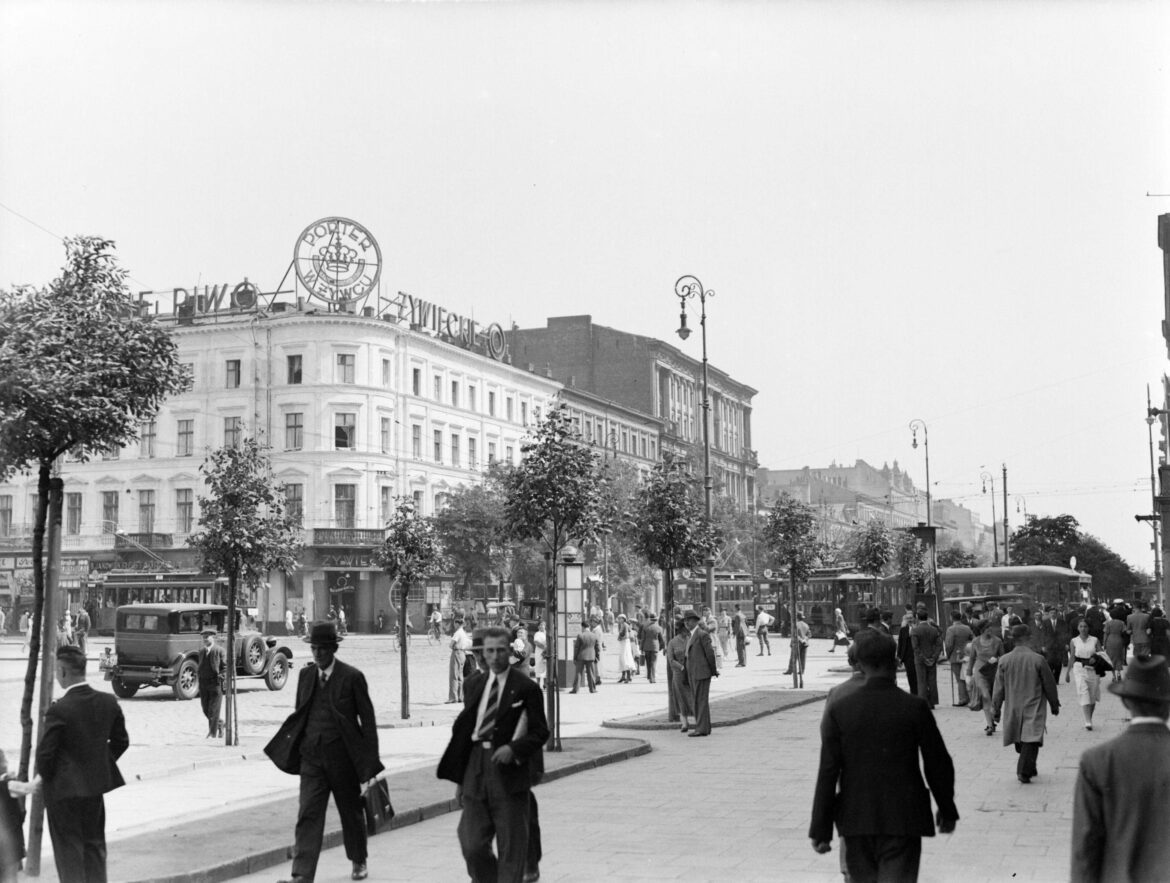The originator of the Jewish Telegraphic Agency was the American journalist Jakub Landau, who lived in the Netherlands. When work on its initiative began in 1917, it soon became apparent that branches of the ŻAT were needed in major European capitals, including Warsaw. The excellence of the agency in Warsaw was interrupted by the Second World War.
The most important organiser of the ŻAT in Poland was Mendel Mozes (1885-1966). He obtained a rabbinical diploma but had a parallel interest in journalism. In 1917, he founded the Bureau of Journalistic News (BWD). Active during the First World War, he tried to collect the most important news from the Russian, German and Austrian press, translating it into Polish and Yiddish. Then, in the form of a “Bulletin”, he sold it to his subscribers.
In 1920, there was a meeting between the American journalist J. Landau and M. Mozes, which resulted in BWD becoming the Warsaw branch of ŻAT. Based at 18 Jerozolimskie Avenue, the agency quickly gained a reputation as an apolitical and unbiased source of information that was valued by the Polish authorities. Moreover, ŻAT’s journalists were the only ones in Poland to produce reliable material on Jewish life in Soviet Ukraine and the Soviet Union.
After the outbreak of the Second World War, the agency operated until 4 September 1939, moving then to Vilnius, where its activities were interrupted by the German occupiers. After the war, attempts were made to revive it. It first became known in Lublin and then in Łódź as the Jewish Press Agency, but its life was short. It ceased operations in 1950.





